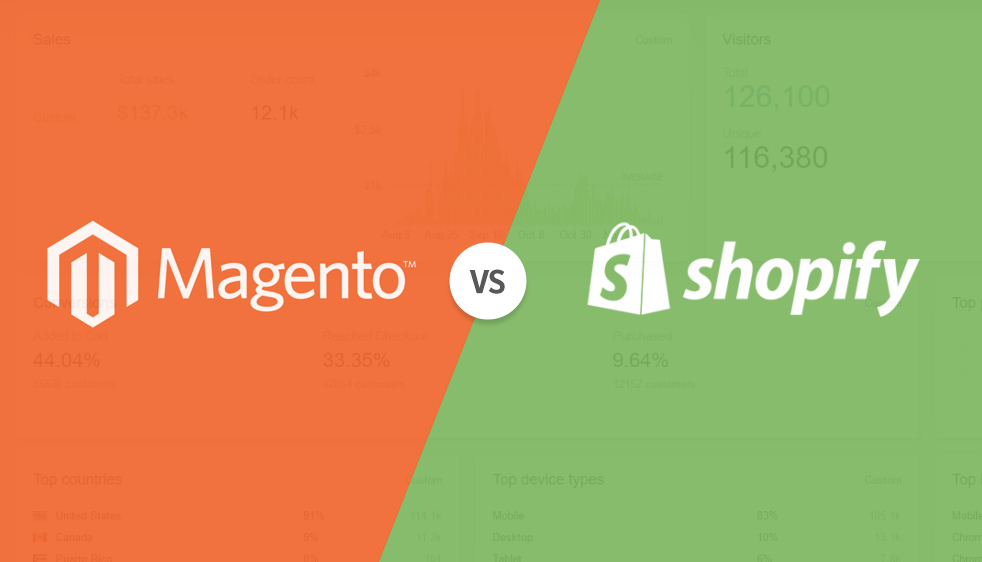Magento Enterprise vs Shopify Plus – How to choose?
Nearly every online retailer has some sort of online sales capability whose bread and butter rely on ecommerce; and, having the right platform can make all the difference.
While there is not an absolute formula or algorithm that exists to calculate which online shopping platform is best for your company, there are some big differentiators that you should be aware of in order to help you narrow down your choices.
Shopify Plus or Magento Enterprise?
While both Shopify Plus and Magento Enterprise seem similar, they couldn’t be more different from a user and security standpoint. Below, we’ve listed the top 5 reasons why businesses choose Shopify vs. Magento.
1. Shopify is hosted solution
Because Shopify is a hosted solution, you and your customers will be safer from cyber attacks and you won’t have to carry the burden of security breach risks — Shopify even uses the same security that banks provide as they are PCI DSS compliant.
On the other hand, Magento is a self-hosted ecommerce platform which means that you are responsible for any security breaches which can get a tad pricey in terms of money and time when you are ensuring that all of yours and your customer’s information is secure.
2. Shopify is user friendly for merchant admin
Shopify doesn’t require merchant admin to have a complex skillset, just the basic user experiences, including JavaScript, CSS and HTML. Plus, their tool set for building the software is so intuitive that developers can mold it how they need to per varying business development needs.
However, Magento’s ecommerce platform requires heavy resources in order to build it, including architects, developers and more. Implementing ecommerce solutions is complex itself as it resembles the development of a custom application making you more responsible for maintaining and managing any changes within its makeup. With all of the necessary customizations, you run the risk of not having an optimal running ecommerce platform.
3. Shopify is Marketing focused
Let’s face it, marketers are relatively familiar in the tech space, but they are far from technology gurus. Shopify understands the need for simplicity when it comes to updating the backend of your ecommerce store for optimal product promotion. That’s why they don’t have a technology focused framework; rather, they’ve made it simple for your marketing department to:
- Create product descriptions
- Design custom forms
- Edit website copy
- Create conversion pixels per social media campaign tracking
- Review advanced analytics
- Create discount code generators and more
Magento, on the other hand, would require the expertise from a web developer who can create the individual codes for such functions.
4. Third party apps are easier to implement
While both Magento and Shopify have a broad selection of 3rd party apps you can integrate to your online store, Shopify has enforces more quality control as it’s a closed system. Both require some knowledge of code language; for Shopify, you’d want to learn more about Liquid whereas for Magento, you’d want to brush up on JavaScript.
5. Better support from Shopify to merchants!
With over 150,000 Shopify merchants in over 150 countries, you’re sure to have all the support necessary to ensure that 3rd party apps are simple to download. Plus, since Shopify has continued to grow and go public, it also makes it, as opposed to Magento, the more cost effective ecommerce platform too.
